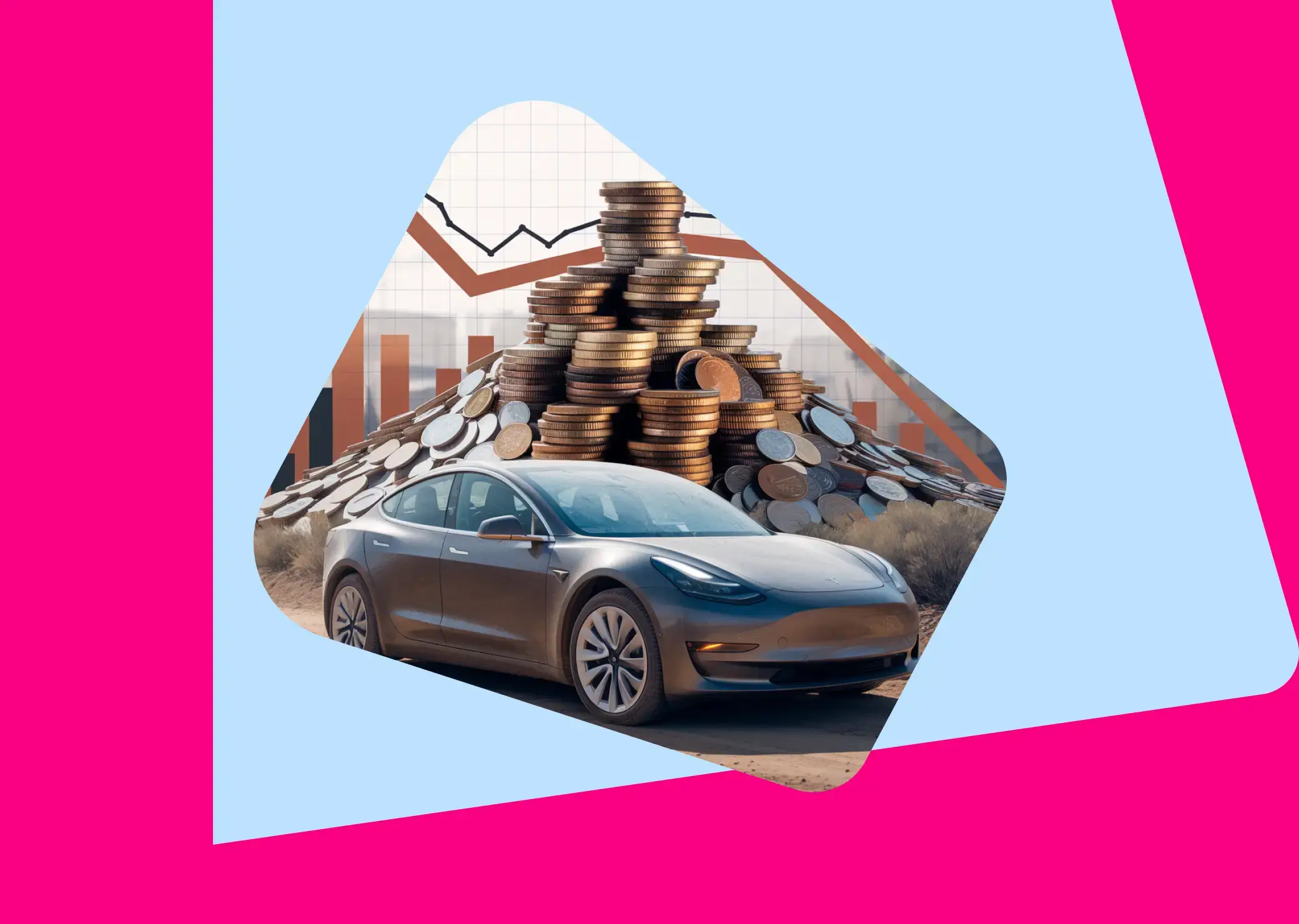- 🗞 News
- Last updated: Nov 25, 2024
- 8 Min Read
Ofgem price cap increase: What it means for UK EV drivers
Written by

Verified by


See how much you can borrow in 60 seconds
| Representative Example | |
|---|---|
| Loan amount | £10,000 |
| Interest rate | 13.9% APR |
| 54 payments of | £246 |
| Total cost of credit | £3,284 |
| Option to purchase fee | £1 |
| Total payable | £13,285 |
With energy costs rising and the UK’s transition to electric vehicles accelerating, many Brits are wondering how the recent Ofgem price cap increase will impact their wallets. With the 2030 ban on petrol and diesel cars quickly approaching, this shift to EVs means rising energy prices could affect more than just household bills.
As the price cap is set to rise by 1.2% on January 1st, 2025, we’ve crunched the numbers and calculated what this means for drivers and how Brits can cut down on energy usage to save on costs.
What is the Ofgem price cap?
The Ofgem price cap limits how much energy companies can charge per unit of electricity for those on standard tariffs. It’s meant to protect households from high energy prices. From January 1st to March 31st, 2025, the cap will be set at £1,738 annually for typical households using both gas and electricity.
While the price cap primarily impacts household energy bills, electric vehicle owners, in particular, should be aware of how the increase will affect their car charging costs.
How will the price cap affect drivers?
|
How the Ofgem price cap will affect EV drivers |
|
|
Pre-increase cost to fully charge a typical EV |
£14.70 |
|
Post-increase cost to fully charge a typical EV |
£14.91 |
|
How the Ofgem price cap will affect hybrid drivers |
|
|
Pre-increase cost to fully charge a typical plug-in hybrid vehicle |
£3.43 |
|
Post-increase cost to fully charge a typical plug-in hybrid vehicle |
£3.48 |
Analysing the average cost per charge of a typical 60kWh battery size EV against the new price cap, we can reveal that the average cost to fully charge an electric vehicle at home will rise from £14.70 to £14.91. With around 1.2 million EVs on UK roads, and the average car using 108kWh of energy per month, this small increase will mean that UK EV drivers will expect to spend approximately £32.21 million in energy costs in total in the month of January alone! This totals a staggering £386 million a year on car changing in UK households across a year.
Hybrid vehicle drivers will experience a smaller, but still noticeable, price increase. The cost of charging a hybrid vehicle at home will rise from £3.43 to £3.48 per charge.
While this increase is undoubtedly significant, it’s important to note that home charging will remain much cheaper than using public charging stations. Currently, public charging points charge an average of 56p/kWh - nearly double the anticipated 24.86p/kWh rate for home charging after the price cap increase.
While the increase per charge may seem small, frequent drivers could see these costs add up, especially as winter approaches and energy consumption increases overall. To help you keep both your wallet and car full, we’ve put together some quick tips to help you reduce the cost of running an electric car.
5 tips for saving money when driving an electric car
1. Charge during off-peak hours
Many energy providers offer reduced rates during off-peak hours, typically at night. Charging during off-peak hours could save up to 30% on your bill, depending on your provider. For example, British Gas’s Economy 7 tariff offers cheaper rates after 12 a.m., while Octopus’s Go tariff reduces costs between 12:30 a.m. and 4:30 a.m. If you can, check if your provider offers these tariffs and weigh up whether it works for your household needs - if it does, you’ll save a significant amount over time.
2. Use a smart charger
Investing in a smart charger is another great way to ensure you're charging your car at the cheapest times. Using a smart charger allows you to track energy consumption and schedules the charging for you. Some smart chargers even adjust charging speed based on your energy provider’s rates - so it’s worth checking if your current provider does this.
3. Monitor your driving habits
Driving more efficiently can also reduce how often you need to charge. Avoiding harsh acceleration and braking, driving at a steady speed, and using eco-mode can all help you stretch each charge further.
Also, some satnav systems offer options for the most range-efficient route - if your satnav or maps have these options try to use them where possible. Although it may not always suggest your usual route, it could still save you valuable pounds.
4. Optimise your home’s energy efficiency
Reducing overall household energy consumption can help offset the cost of charging your EV. Simple measures like buying and using energy-efficient appliances and improving home insulation can lower your energy bills significantly.
5. Get rid of the junk in the trunk
Travel light whenever possible to avoid heavy fees. Carrying extra weight consumes more energy, which reduces your vehicle’s range more quickly. By removing excess items from the boot, roof boxes, or any unnecessary clutter will keep your car light, and will ultimately burn through less energy.
By using these hacks and keeping mindful of when and how you charge your EV, it’s possible to mitigate the impact of the upcoming Ofgem price cap increase and keep your energy bills manageable so you can save your cash and keep your car fully charged at the same time!
See how much you can borrow in 60 seconds
| Representative Example | |
|---|---|
| Loan amount | £10,000 |
| Interest rate | 13.9% APR |
| 54 payments of | £246 |
| Total cost of credit | £3,284 |
| Option to purchase fee | £1 |
| Total payable | £13,285 |
Related articles
Can you drive in the UK on a foreign licence?
If you’re new to the UK, you might be keen to get behind the wheel to explore on the open road. You can usually drive in the UK...
What happens if my car is written off and it’s still on finance?
Accidents happen. When split-second decisions and challenging conditions make driving difficult at the best of times, even the...
Which credit reference agencies do lenders use?
When applying for car finance, your credit score can make a significant difference to the APR you’re offered, your repayment...


.webp?width=832&height=592&name=customer-support%20(1).webp)










.webp?width=400&height=285&name=online-shoppers-with-dog%20(1).webp)


.jpg?width=500&height=356&name=Vintage%20car%20going%20to%20an%20old%20town-1%20(1).jpg)





